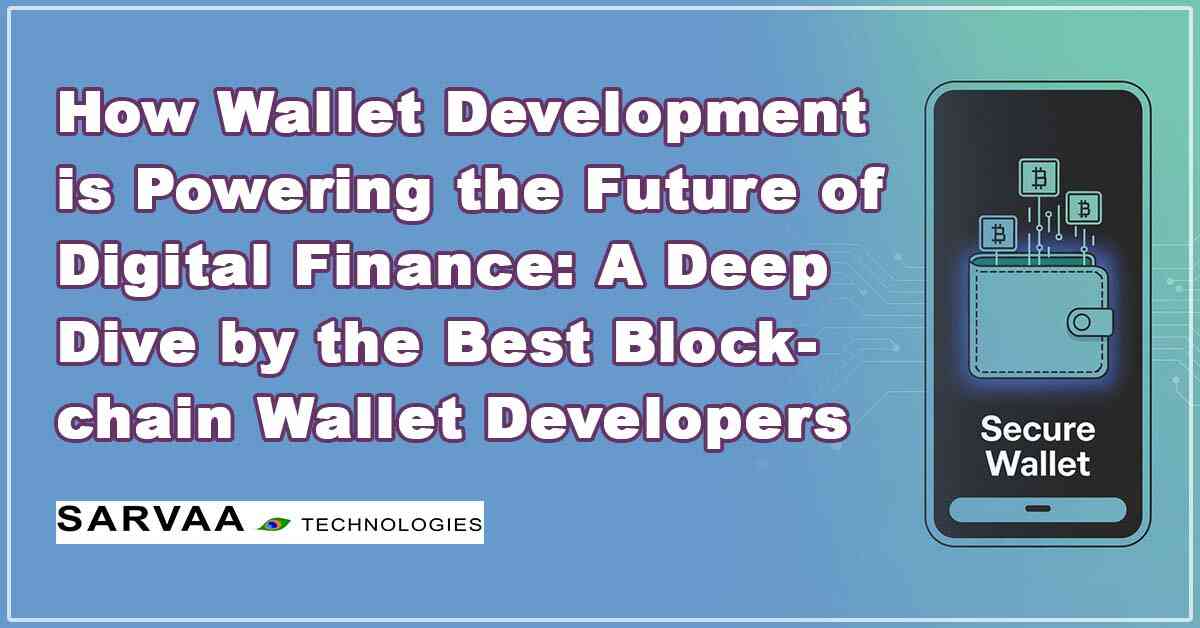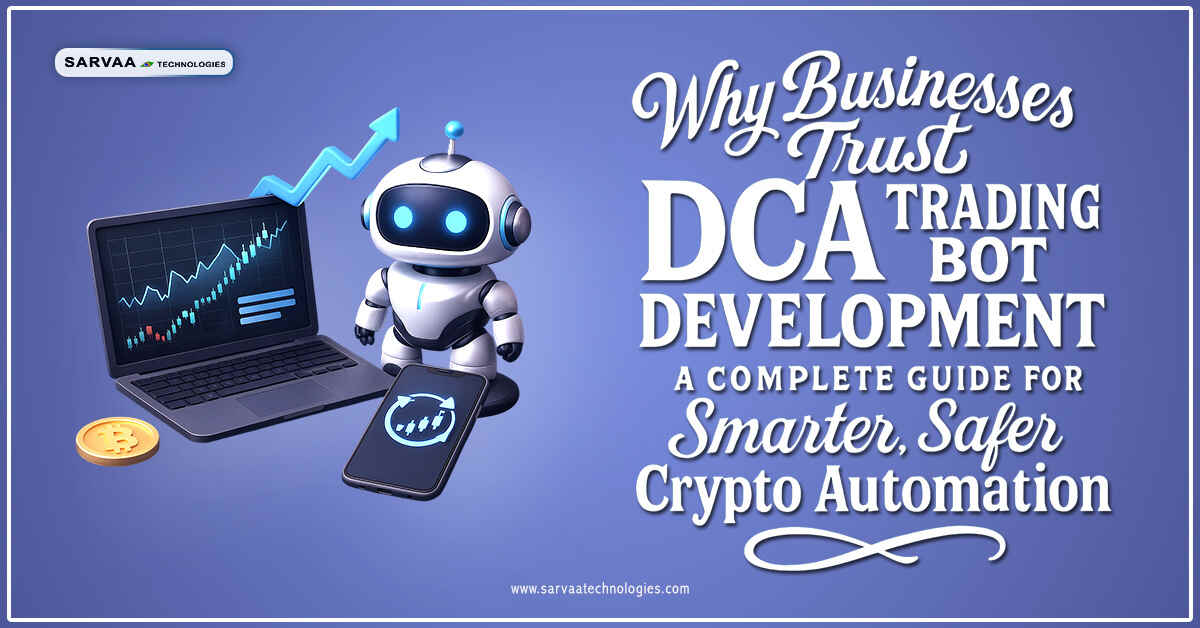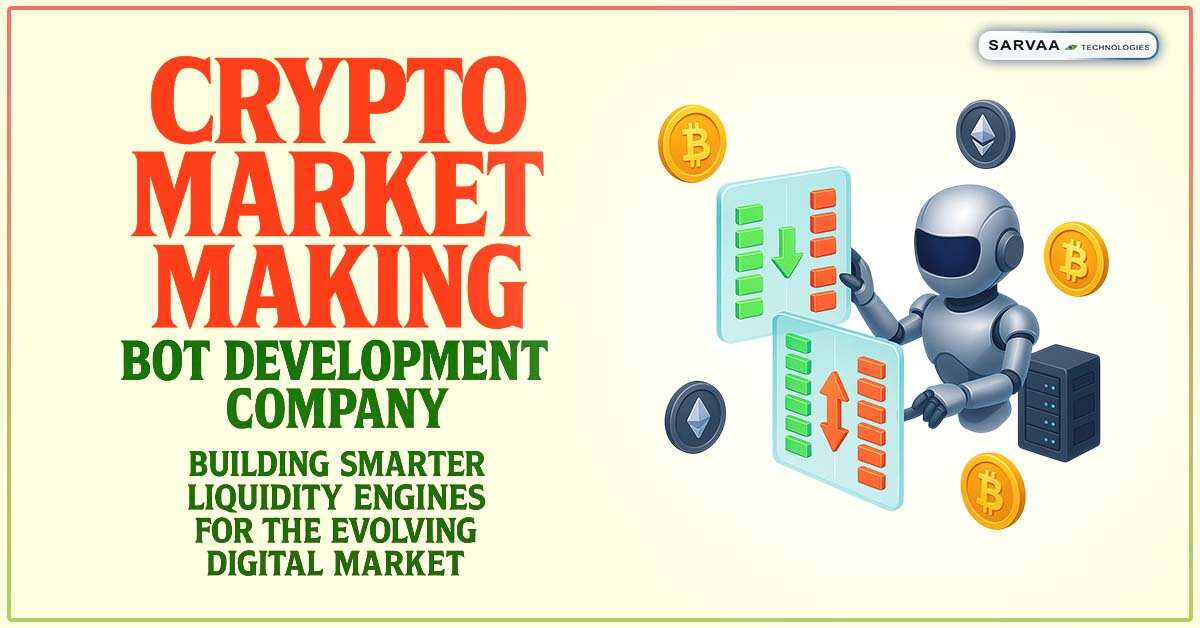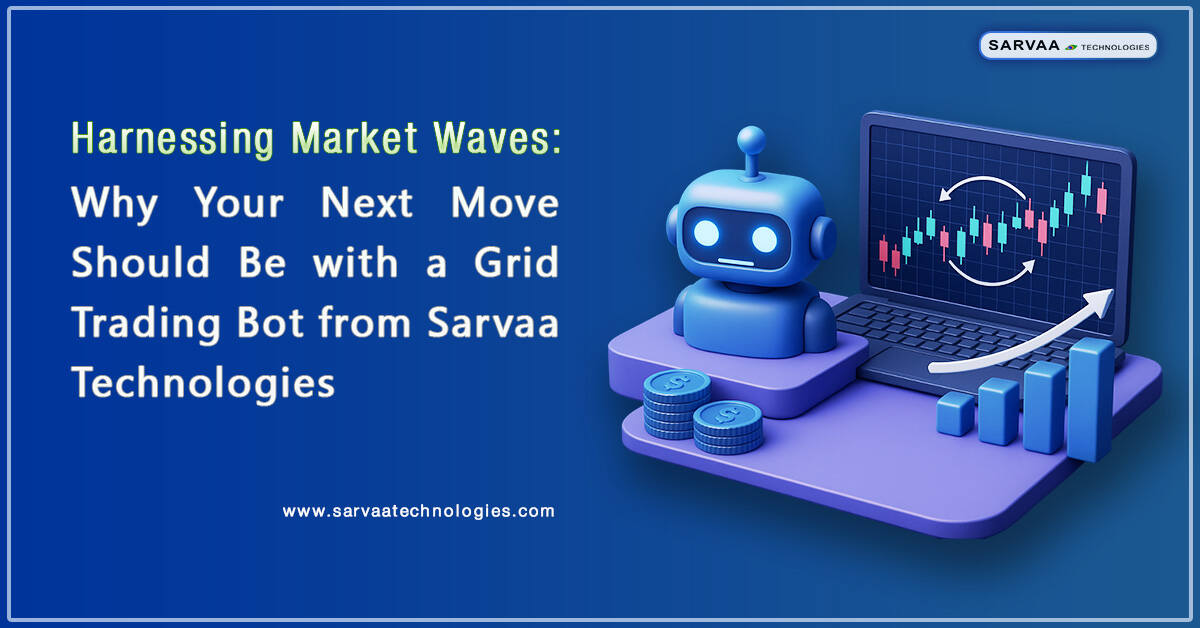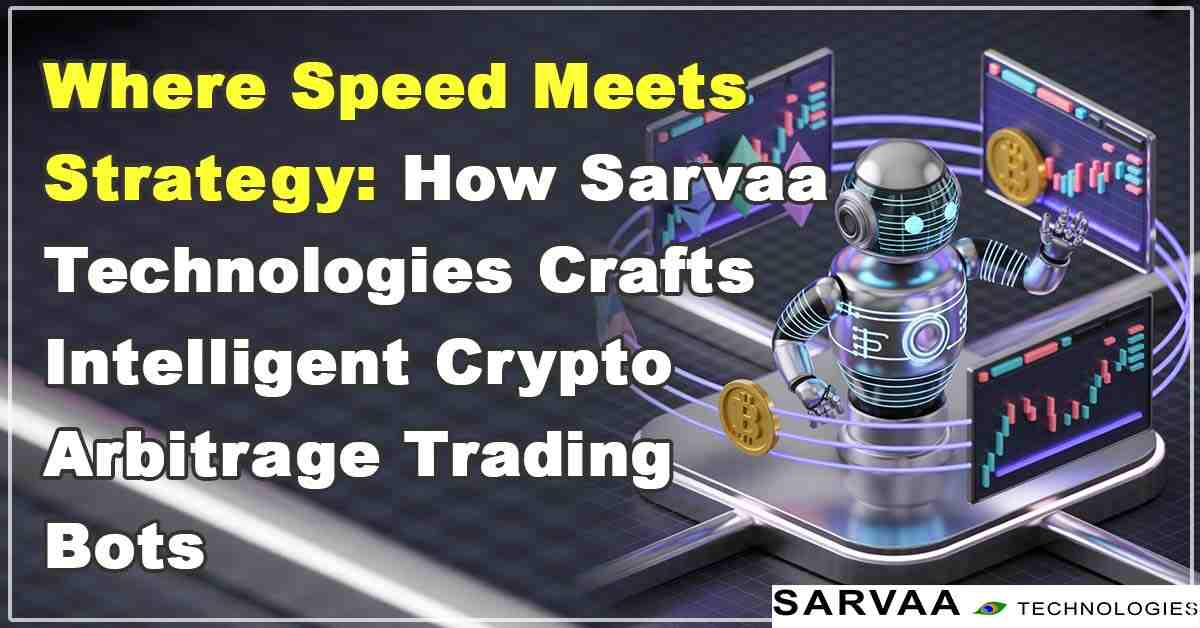The Rise of Blockchain Wallets in a Digital-First Economy
You’ve probably noticed it too, money doesn’t work the way it used to.
These days, nobody wants to stand in bank queues or deal with forms. We tap, swipe, scan, and boom it’s done. And now, with crypto taking off, people are skipping banks entirely. That’s where blockchain wallets come in. Simple idea, really. It’s like a digital safe. Only you’ve got the key, and nobody else touches it. Ever.
Now, to be clear, these wallets aren’t just for Bitcoin bros. They’re becoming mainstream. People are using them to buy stuff, trade coins, store NFTs and even log in to apps. Yeah, really. They’re more than storage. They’re identity, access, and freedom all rolled into one app.
And businesses? They’ve caught on. Everyone from startups to fintech giants wants in. But there’s a catch: not every wallet works well. Some feel clunky. Others just aren’t secure. That’s why wallet development is kind of a big deal right now.
In Sarvaa Technologies, we build wallets that people actually like using. Clean design, real security, and the kind of performance that doesn't make your users want to delete the app five minutes in.
Stick around. I'll walk you through what makes a good wallet, what to avoid, and how to spot the best blockchain wallet developers from the crowd.
What Is Blockchain Wallet Development?
Let’s break it down! A blockchain wallet is basically your own private gateway to the world of digital assets. It’s where you store your crypto, yes but it’s also how you send, receive, and sometimes even trade tokens or sign into Web3 apps. Think of it like a banking app... except there’s no bank behind it.
But here’s where it gets interesting: these wallets don’t actually "hold" your coins. Your crypto lives on the blockchain itself. What the wallet does is store the private keys that prove you own whatever’s in that account. Lose those keys, and you’re locked out. Forever. So yeah, security matters. A lot.
Now, when we talk about blockchain wallet development, we’re not just talking about making an app that shows a balance and a “Send” button. Real wallet development goes way deeper. You’ve got to handle encryption, seed phrase backups, transaction signing, blockchain integration, gas fees, and a bunch of stuff that happens behind the scenes all without confusing the user.
There are different types of wallets too. Some are custodial (meaning a third-party holds the keys), while others are non-custodial (only the user has control). Then there are hot wallets, which are always online, and cold wallets, which are kept offline for extra security. Each has pros and cons depending on who you’re building for.
At Sarvaa, we develop wallets from scratch whether you’re building a DeFi platform, an NFT marketplace, or just want a simple, branded crypto wallet for your users. We focus on user experience, but we never cut corners on security. Because in this world? Trust is everything.
Key Features Users Expect from a Modern Blockchain Wallet
Here’s the thing when someone downloads a blockchain wallet, they’re not looking to read a manual. They want to open the app and get it right away.
The first thing users care about? Security. Nobody wants to lose their crypto. Whether it’s a couple hundred bucks or a full portfolio, security is important. People want private keys kept safe, maybe tucked behind fingerprint access or a PIN. Two-factor auth doesn’t hurt either.
Next up, convenience. That means supporting multiple coins and tokens in one place. No one wants five different apps just to check balances. Bitcoin, Ethereum, USDT, Solana if it’s popular, the wallet should handle it.
Another big one? Speed. Ever hit “send” and then stare at your screen wondering if it worked? That lag kills trust. A solid wallet shows transaction updates in real time, or pretty close to it.
Design plays a bigger role than you’d think. A lot of people still find crypto intimidating. A good wallet keeps things simple. Clear layout, easy buttons, clean navigation, no fluff.
Extras are nice too. Swapping tokens in-app, viewing NFTs, tracking gas fees, those little touches matter. But only if the basics are rock-solid first.
At Sarvaa, we always start simple: does it feel safe? Is it fast? Would someone new to crypto get it within five minutes? If not, we rethink it.
Sarvaa: Wallet Development Solutions We Offer
Every project’s different. Some folks come to us with a crazy new idea, others just want something that works fast. That’s why we don’t lock ourselves into just one way of building wallets. We stay flexible, because let’s be real Web3 moves fast.
If you’re starting from scratch, we can build you a custom wallet tailored to your users. That means we sit down, figure out what they actually need, and go from there. Whether it’s a DeFi platform, a token-based membership app, or something completely out of the box we're game.
Need something quicker? We’ve got white-label wallets that are ready to go. You can tweak the design, add your logo, swap out features and basically make it yours without having to wait six months.
Most users these days hop across chains, so we handle multi-chain support too. Ethereum, BNB, Polygon, Solana we make sure your wallet plays nice with them all.
We also build for niches. NFT wallets, staking dashboards, DAO vaults, you name it. If it connects to Web3, we’ve probably built it or at least talked about building it.
Behind the scenes, it’s all secure. Private key management, encrypted storage, clean code. If you need reliable wallet development services, we’ll build what works for your users.
Why Sarvaa Techn Is the Best Blockchain Wallet Development Company for You
Everyone says they’re “innovative” or “cutting-edge.” Honestly, that stuff’s been said so much, it doesn’t even mean anything anymore.
Here’s what actually makes us different: we listen. Really. Before we write a single line of code, we ask questions about your users, your goals, your needs. We’re not just building another wallet app. We’re building your wallet. That’s the difference.
At Sarvaa Technologies, we’ve worked with solo founders launching their first Web3 startup, and with established platforms looking to level up. Some wanted minimalist wallets with just the essentials. Others needed complex stuff like DeFi integration, custom tokens, or NFT galleries. We’ve done all that.
Our process is pretty straightforward. We start by mapping out your needs. Then we prototype, test, and build in sprints so you're never in the dark. You see the progress, give feedback, and we adjust. No rigid timelines. No "we’ll get back to you in three weeks" kind of stuff.
Also this might sound obvious but we care about the details. A button that’s two seconds too slow? We fix it. A weird wallet sync issue that only happens on one Android phone? We dig into it. Because users notice. And so do we.
So, if you’re looking for a blockchain wallet development company that won’t ghost you, overbill you, or hand you a buggy product you’re in the right place.
How to Choose the Right Wallet Development Service: A Buyer’s Checklist
Picking a wallet development team isn’t something you do on a whim. There are a lot of developers out there, some legit, some... not so much. If you're serious about building something secure and actually usable, you've got to ask the right questions from day one.
First off, do they understand blockchain? Not just crypto, but real architecture. Can they explain how private keys work, how to connect with multiple chains, and how to keep transactions safe? If they can’t walk you through that in plain English, it’s a red flag.
Next, do they build for users? A wallet might work perfectly under the hood, but if it’s hard to use, people won’t stick around. Ask to see what they’ve built before. Click through the demos. If it doesn’t feel good to use, keep looking.
Security is non-negotiable. You’ll want to know how they handle encryption, key storage, recovery options, and whether they do regular audits. Even one missed detail here can cost users their assets and your brand its reputation.
Ask about scalability. Can the wallet grow with your platform? Add new features later? Support more tokens or integrate with DeFi tools as needed?
And here’s one that’s often overlooked: communication. If a dev team disappears for two weeks without an update, that’s a bad sign. You want a partner, not a mystery.
At Sarvaa, we welcome these questions. We’ve heard them all and we’re happy to answer them, because building trust starts before the first commit.
The Future of Wallet Development: Trends and Predictions
Where AI Meets User Convenience
Let’s face it, wallets are no longer just a place to stash your crypto. As the blockchain space grows up, users expect more. They want speed, simplicity, and safety all in one place. That’s why developers are now looking at artificial intelligence (AI) to make wallets smarter.
What does an AI-powered wallet even look like? Think of it like your financial assistant. It watches for unusual activity, nudges you when gas fees are too high, and even gives tips based on how you use your funds. It’s about turning a simple app into something more aware that helps you make better decisions on the fly.
But AI isn’t the only trend shaping the future. Users are tired of jumping between different wallets and chains. There’s growing demand for unified experiences wallets that let people manage multiple tokens, across chains, without confusion. Convenience is king, and seamless is the new standard.
Another big shift is happening in the privacy space. As regulations tighten, wallet creators are being challenged to build tools that protect user identity while still playing by the rules. The winners here will be those who can walk the line between transparency and personal control.
And then there’s identity. More wallets are starting to function like digital passports helping users sign into apps, manage access, and prove who they are, all without handing over sensitive data.
One thing’s for sure: the wallets of tomorrow won’t just store your crypto. They’ll work with you, grow with your habits, and put real control back in your hands.
Final Thoughts: Building Trust in a Borderless Digital Economy
Wallets Aren’t Just Tools They’re Gateways
Let’s be real, wallets are becoming personal gateways to an entire digital universe. From storing assets to logging into decentralized apps, verifying your identity, or even participating in DAOs wallets are the keys to this new world.
But here’s the thing: no matter how advanced the technology gets, trust remains the deal-breaker.
People won’t stick with a wallet that makes them feel secure where they know their data is safe, their transactions are private, and their assets are protected. That’s why wallet development is as much about user trust as it is about lines of code.
The digital economy is borderless now. A user in Kenya might be trading crypto with someone in Berlin. A freelancer in the Philippines might be getting paid in stablecoins from a company in Canada. And guess what’s making that possible? A reliable wallet. It quietly powers this invisible infrastructure we’re all starting to rely on more and more.
So if you’re building or choosing a wallet, ask yourself this: does it just store coins? Or does it build confidence every time you tap that “send” button?
Because at the end of the day, people will remember how safe it felt to trust your wallet in a world without borders.
